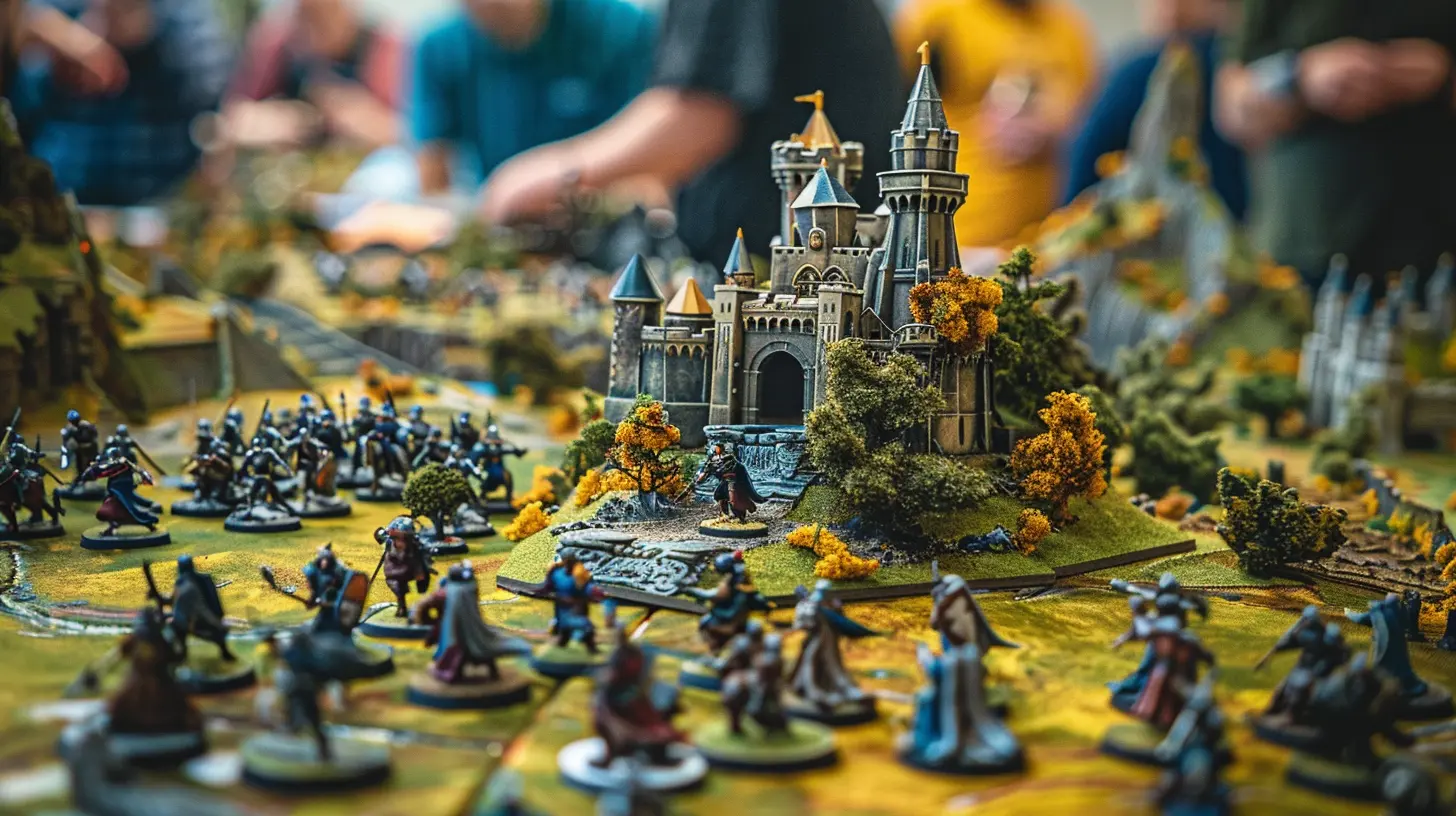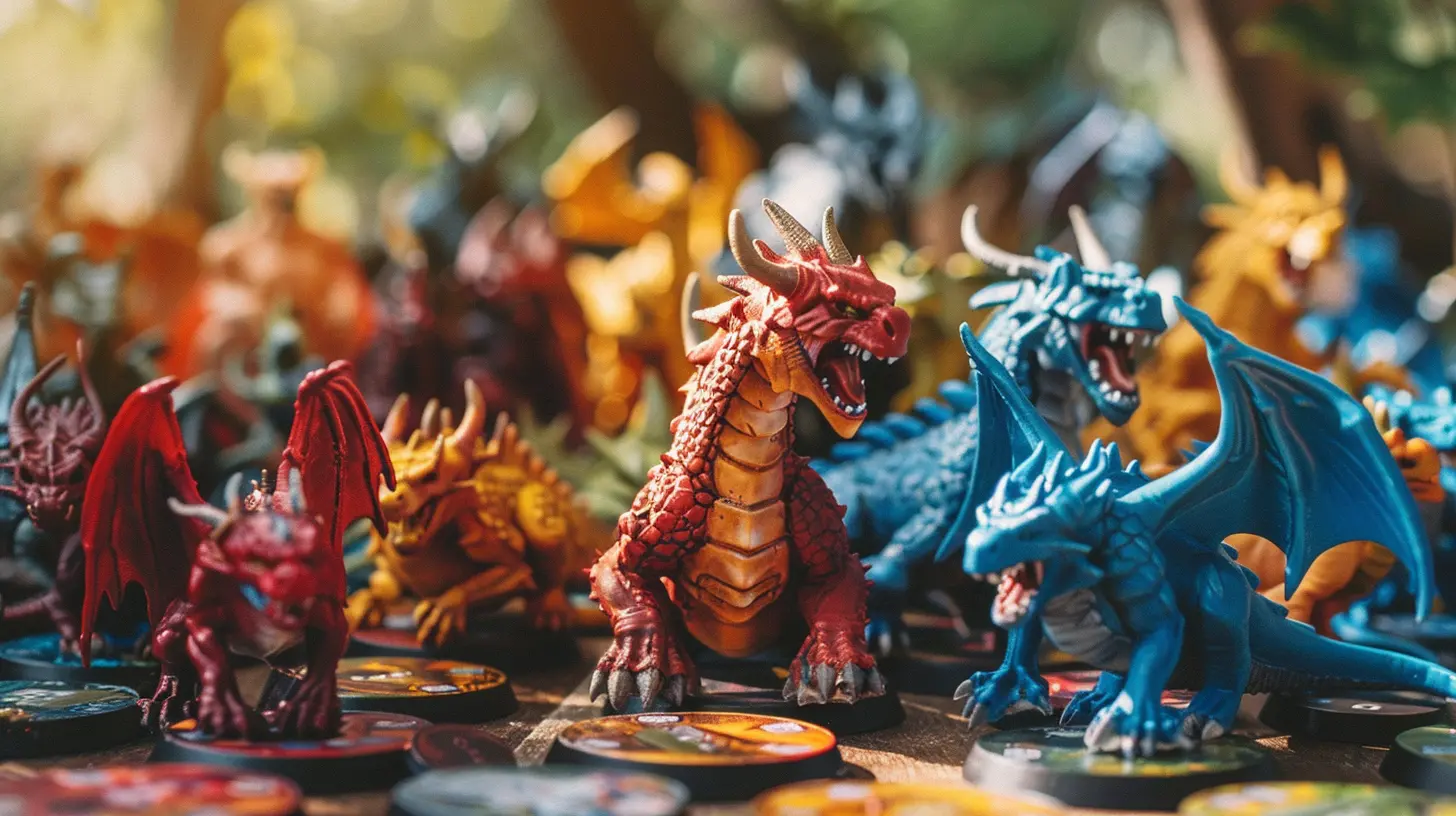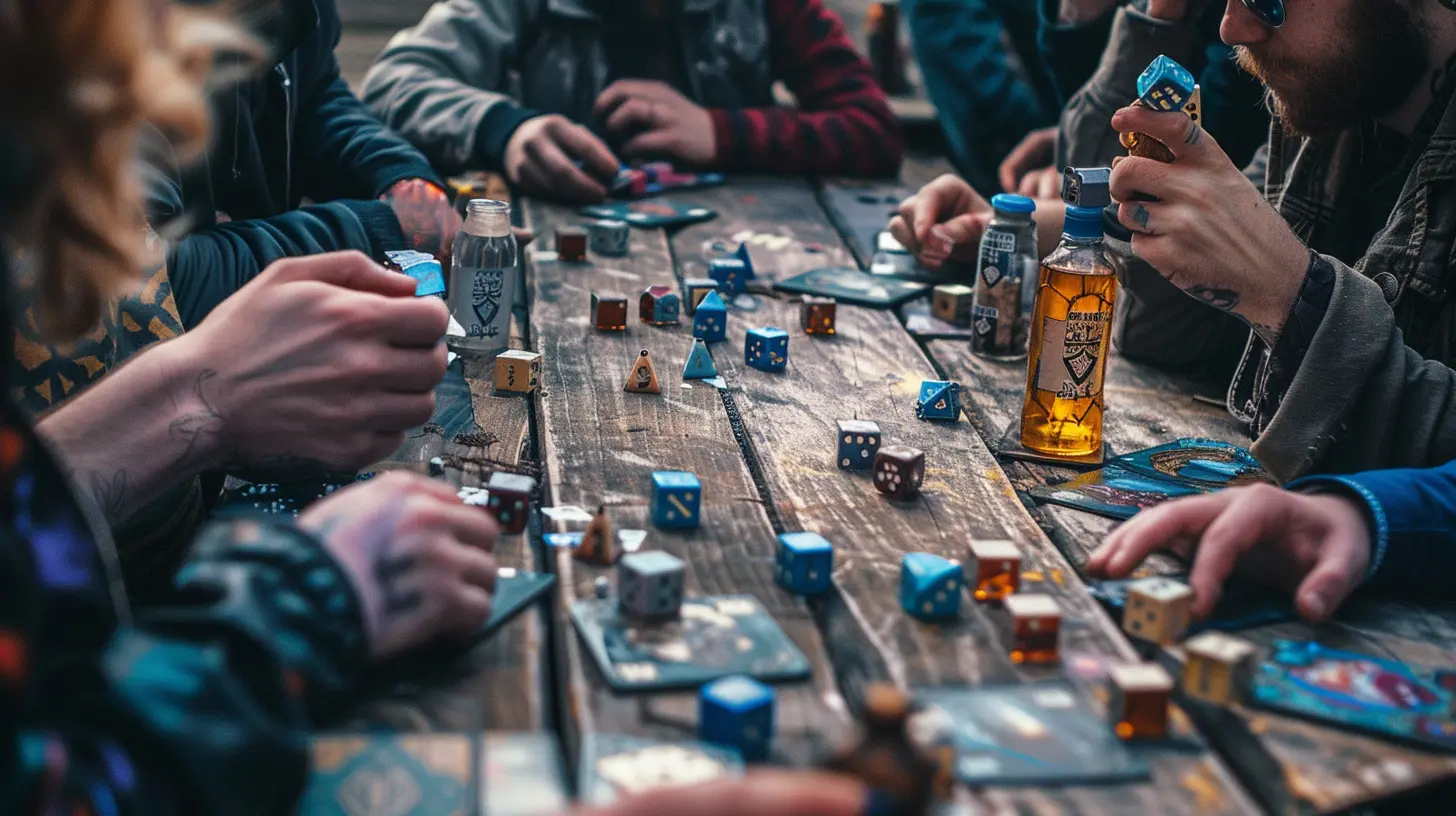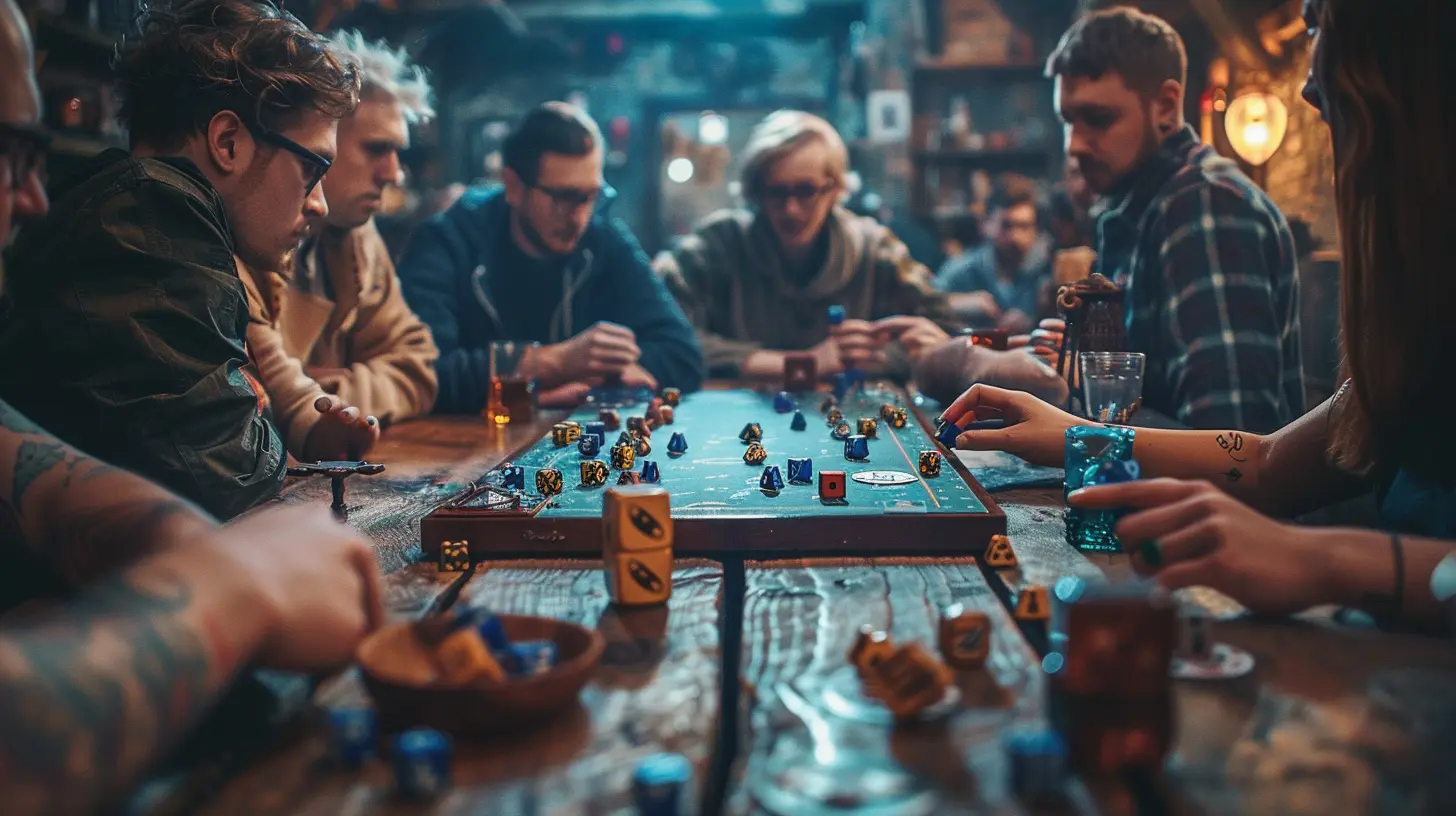How to Organize a Successful Tabletop Tournament
30 October 2025
Organizing a tabletop tournament is like throwing a party where fun, competition, and camaraderie are the main courses. Whether you're passionate about Dungeons & Dragons, Magic: The Gathering, Warhammer, or any other tabletop game, a well-run tournament can bring people together, create lasting memories, and even strengthen a local gaming community. But let’s be honest—pulling off a successful tabletop event requires more than just handing out dice and setting up chairs. It’s about planning, preparation, and a touch of creativity.
So, if you’re ready to dive into the world of tabletop tournament organizing, buckle up! I'm going to guide you step-by-step through the process, sprinkling in a few tips and tricks to make your event a smashing success.
1. Start with a Clear Vision
Before you dive into the nitty-gritty, take a moment to picture your tournament. What’s the vibe? Are you imagining a relaxed and fun event with friendly competition, or a high-stakes showdown with serious prizes? Defining the purpose and tone of your tournament will help you make decisions down the road.Ask Yourself:
- What game is the focus?- How many players do you want?
- What's your budget?
- What is the level of experience of your participants? (Casual players? Hardcore veterans?)
This step is key because it sets the foundation for all your planning. Think of it like building a character—if your base stats are all over the place, things might get messy later!
2. Choose the Right Location
Location is everything. You want a space that’s comfortable, accessible, and suits the size of your crowd. Hosting it in your living room might work for a group of four, but if you're expecting twenty players? Not so much.Things to Consider:
- Space: How many tables and chairs will you need? Can the venue accommodate them?- Accessibility: Is the location easy to find? Is there parking or public transportation nearby?
- Amenities: Does the venue have Wi-Fi, electrical outlets, or restrooms?
- Noise Levels: Nobody wants to shout over a blaring TV or background chatter during intense gameplay.
If you’re going for a larger event, consider renting a community center, game store, or library meeting room. Many game stores are open to hosting events and might even help promote your tournament if it involves games they sell.
3. Plan the Tournament Format
Choosing the right format is like picking the right ingredients for a recipe—it can make or break the overall experience. The format will influence how long the event runs, how competitive it feels, and even how much fun people have.Popular Tournament Formats:
- Single Elimination: You lose, you’re out. Simple and quick, but not great if people want more playing time.- Double Elimination: Gives players a second chance before being eliminated, balancing fairness and time.
- Swiss System: Players face off in multiple rounds, matched against opponents with similar records. It’s great for ensuring everyone plays several games.
- Round Robin: Each player competes against every other player. Best for smaller groups (or games with short rounds).
When planning, also consider how long each game takes to play. A Warhammer 40K battle could take hours, while a game of Dominion might last 30 minutes. Be realistic with your schedule—nobody wants to be stuck playing until midnight... unless that’s part of the appeal!
4. Set Up Rules and Guidelines
Every great event has clear rules—your tournament is no exception. Not only do rules keep the event fair, but they also help avoid disputes and confusion. Trust me, you’ll thank yourself later.Include These in Your Rules:
- Game Rules: Follow the official rules of the game. If you’re using house rules, make sure everyone knows about them in advance.- Eligibility: Are there any requirements to participate? Age limits? Skill levels?
- Code of Conduct: Encourage good sportsmanship and respectful behavior. Spell out the consequences of rule-breaking.
- Tiebreakers: Decide how to handle ties, especially if your format doesn’t account for them.
Print your rules and hand them out before the tournament begins. Better yet, post them online beforehand (if possible). That way, everyone’s on the same page.
5. Spread the Word
What’s a tournament without players? It’s like a campaign party missing its Dungeon Master—it just doesn’t work. Once you’ve got the basics planned, it’s time to invite players.Ways to Promote:
- Post on social media: Use Facebook groups, Reddit threads, Discord servers, or Instagram stories.- Partner with a local game store: They might let you advertise at their shop or on their website.
- Create flyers: Go old-school and stick them up at schools, gaming cafes, or libraries.
- Word of mouth: Rally your friends and encourage them to invite others.
When promoting, include all the essential details: date, time, location, entry fee (if any), and a brief explanation of the tournament format. Bonus points if you create a fun and eye-catching design for your promotional materials.
6. Prepare Prizes
Let’s be real—prizes add excitement! Even if it’s a casual tournament, people love walking away with something tangible, whether it’s a trophy, store credit, or even a small token like themed dice or a pack of cards.Prize Ideas:
- Trophies or plaques for the top players- Gift cards to a local gaming store
- Booster packs or expansion sets
- Custom game-themed swag (dice bags, miniatures, playmats, etc.)
- Certificates or even digital badges for participation
You don’t need to break the bank. The key is making players feel recognized—sometimes a creative or handmade prize can mean more than an expensive one.
7. Game Day Prep
The big day is finally here! Preparation is your best friend—you’ll want everything ready to go so you can focus on hosting (and maybe even playing) instead of scrambling last minute.Game Day Checklist:
- Venue Setup: Arrive early to arrange tables, chairs, and anything else needed for gameplay. Leave enough space for movement.- Sign-in Area: Set up a table for registrations, name tags, and rulebooks.
- Scorekeeping System: Have a plan for tracking wins, losses, and points. This could be a simple spreadsheet or a pen-and-paper system.
- Snacks and Drinks: Be the host with the most—stock up on water bottles and light snacks. Some venues don’t allow outside food, so double-check before bringing in chips and soda.
8. Be Ready to Adapt
No matter how much you plan, something unexpected might happen. A player might cancel, the Wi-Fi might go down, or a heated rules debate could arise. Flexibility is key to resolving issues calmly and fairly.Here’s a tip: Think of yourself as the Dungeon Master of your tournament. It’s your job to keep the story moving, even when the dice roll against you. Be prepared to make judgment calls and keep the event fun for everyone.
9. Wrap It Up with Style
After the final game, take a moment to celebrate the winners and thank everyone for coming. You can even organize a quick post-tournament hangout, like grabbing lunch or chatting about the best moments of the day. It’s a great way to wrap things up on a positive note—and maybe even start planning your next event.And don’t forget to collect feedback! Ask players what they enjoyed and what could be improved. This will make your next tournament even better.
Conclusion
Organizing a successful tabletop tournament isn’t rocket science, but it does take effort, creativity, and a dash of patience. Remember, at the end of the day, it’s all about creating a memorable experience for everyone involved. So roll those dice, shuffle those cards, and get ready to host the kind of event people will be talking about for months to come!all images in this post were generated using AI tools
Category:
Tabletop GamesAuthor:

Leandro Banks
Discussion
rate this article
1 comments
Marni McCracken
Great tips! I especially liked the emphasis on clear communication and fair rules. Organizing tournaments can be tricky, but these insights are super helpful for ensuring a fun experience for everyone!
November 1, 2025 at 6:03 AM

Leandro Banks
Thank you! I'm glad you found the tips helpful. Clear communication and fairness really do make a big difference in creating an enjoyable tournament experience!


